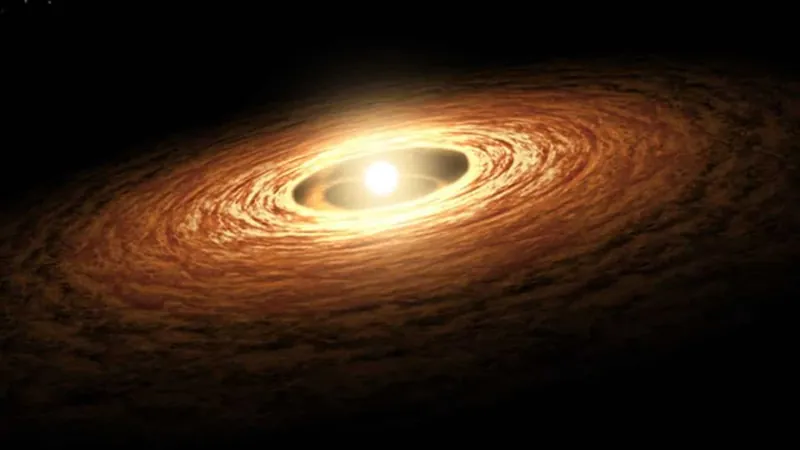
Scientists Uncover Cosmic Secrets: How Meteorites Delivered the Seeds of Life to Earth!
2024-10-12
Author: Rajesh
Introduction
How did life first emerge on our planet? This timeless question has fascinated scientists for ages, and a groundbreaking new study provides tantalizing clues: the answer may lie in the very meteorites that frequently visit Earth.
Role of Meteorites in Life's Origins
Recent research suggests that these celestial rocks were instrumental in delivering essential building blocks for life to early Earth, intimating that alien life could exist somewhere in the cosmos. According to the study, these meteorites are remnants of ancient “unmelted asteroids”—small rocky bodies known as planetesimals, which played a crucial role in the formation of the planets within our solar system.
Formation of Planetesimals
Formed approximately 4.6 billion years ago in a swirling disk of dust and gas surrounding a nascent sun, these planetesimals progressively stuck together, building larger bodies through accretion. This research, conducted by a team from the University of Cambridge and Imperial College London, delved into the origin of Earth's volatiles—critical elements that support life.
Zinc's Significance
By examining the chemical element zinc in meteorites, the scientists uncovered a fascinating insight: zinc’s unique composition provides valuable information about the origins of these volatiles. The findings reveal that nearly half of Earth's zinc originated from the inner solar system, while the remainder came from regions beyond Jupiter.
Characteristics of Planetesimals
Planetesimals vary significantly in their characteristics. Those formed during the early solar system era were subjected to intense radiation from the young sun, resulting in substantial loss of volatiles due to melting. In contrast, later-formed planetesimals, less affected by radiation, retained more of these essential components.
Research Findings
Through meticulous analysis of zinc content in various meteorites, researchers traced the timeline of its arrival on Earth over tens of millions of years. Remarkably, they discovered that while melted planetesimals constituted a staggering 70% of our planet's total mass, they contributed only about 10% to its zinc content. This implies that a whopping 90% of Earth's zinc came from these so-called "unmelted" planetesimals.
Implications for Life Beyond Earth
This groundbreaking research not only sheds light on the origins of life on Earth but also inspires questions about life beyond our planet. If zinc and other vital chemicals can be delivered to celestial bodies through meteorites, it raises the intriguing possibility that life could arise in similar ways elsewhere in the universe.
Conclusion
As we look to the stars, the findings of this study remind us that the cosmos may hold further secrets about our origins and the potential for life beyond Earth. The search for extraterrestrial life just got a whole lot more exciting!


 Brasil (PT)
Brasil (PT)
 Canada (EN)
Canada (EN)
 Chile (ES)
Chile (ES)
 España (ES)
España (ES)
 France (FR)
France (FR)
 Hong Kong (EN)
Hong Kong (EN)
 Italia (IT)
Italia (IT)
 日本 (JA)
日本 (JA)
 Magyarország (HU)
Magyarország (HU)
 Norge (NO)
Norge (NO)
 Polska (PL)
Polska (PL)
 Schweiz (DE)
Schweiz (DE)
 Singapore (EN)
Singapore (EN)
 Sverige (SV)
Sverige (SV)
 Suomi (FI)
Suomi (FI)
 Türkiye (TR)
Türkiye (TR)